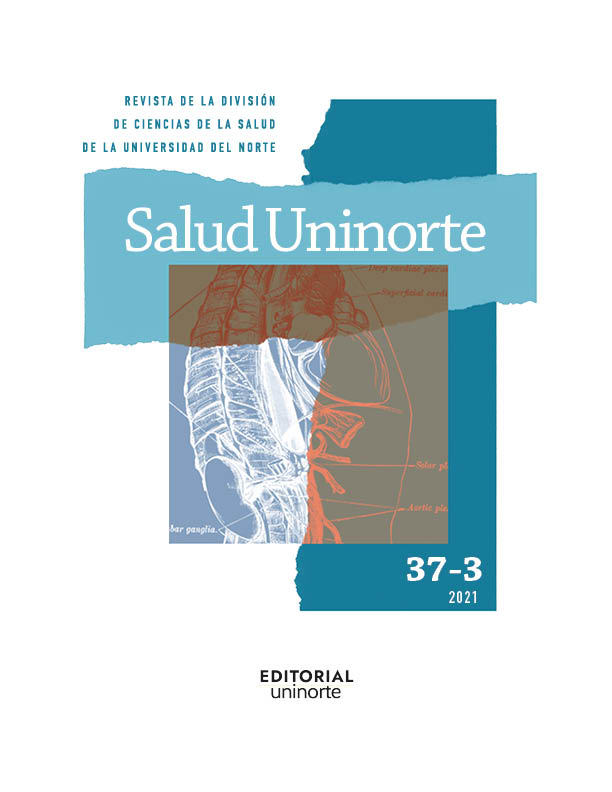Influence of Family Communication on Perceived Stress during the COVID-19 Pandemic
DOI:
https://doi.org/10.14482/sun.37.3.616.981Keywords:
stress disorders, communication, mental health, family relations, COVID-19.Abstract
Objective: This descriptive-correlational study analyzed the relationship between family communication and perceived stress during the Covid-19 pandemic in Colombia.
Methods: The participants were 800 Colombians, between 18 and 91 years old (Mean = 33,91; Standard Deviation = 15,75), who responded with prior informed consent to three reliable instruments: Parent-Child Communication Scale (PACS), Perceived Stress Scale (EEP-10), and the Scale of Stressful Concerns in the Covid-19 Pandemic (EPEP).
Results: Findings revealed high levels of negative stress at the beginning and end of quarantine that had to do with economic, work, family, and health concerns. Family communication proved to be a significant predictor of stress. In that sense, it was observed that open communication between household members is associated with a reduction in negative
stress (r = -,103***). However, when communication at home is mediated by frequent offenses (? = ,719 ***), and is combined with health concerns (? =. 723 ***), and family coexistence (? =, 657***), it increases predictively high negative stress by up to 37.9% of the total variance.
Conclusions: these findings suggest strengthening family dialogue and collective coping strategies to reduce stress and learn to better manage concerns in this pandemic context surrounded by fears and uncertainties. Finally, recommendations from the fields of psychology and communication in health are given to focus on preventive actions against high or chronic stress.
Downloads
Published
How to Cite
Issue
Section
License
(COPIE Y PEGUE EL SIGUIENTE TEXTO EN UN ARCHIVO TIPO WORD CON TODOS LOS DATOS Y FIRMAS DE LOS AUTORES, ANEXE AL PRESENTE ENVIO JUNTO CON LOS DEMAS DOCUMENTOS)
AUTORIZACIÓN PARA REPRODUCCIÓN, USO, PUBLICACIÓN Y DIVULGACIÓN DE UNA OBRA LITERARIA, ARTISTICA O CIENTIFICA
NOMBRE DE AUTOR y/o AUTORES de la obra y/o artículo, mayor de edad, vecino de la ciudad de , identificado con cédula de ciudadanía/ pasaporte No. , expedida en , en uso de sus facultades físicas y mentales, parte que en adelante se denominará el AUTOR, suscribe la siguiente autorización con el fin de que se realice la reproducción, uso , comunicación y publicación de una obra, en los siguientes términos:
1. Que, independientemente de las reglamentaciones legales existentes en razón a la vinculación de las partes de este contrato, y cualquier clase de presunción legal existente, las partes acuerdan que el AUTOR autoriza de manera pura y simple a La UNIVERSIDAD DEL NORTE , con el fin de que se utilice el material denominado en la Revista
2. Que dicha autorización se hace con carácter exclusivo y recaerá en especial sobre los derechos de reproducción de la obra, por cualquier medio conocido o por conocerse, comunicación pública de la obra, a cualquier titulo y aun por fuera del ámbito académico, distribución y comercialización de la obra, directamente o con terceras personas, con fines comerciales o netamente educativos, transformación de la obra, a través del cambio de soporte físico, digitalización, traducciones, adaptaciones o cualquier otra forma de generar obras derivadas. No obstante lo anterior, la enunciación de las autorizaciones es meramente enunciativa y no descartan nuevas formas de explotación económica y editorial no descritas en este contrato por parte del AUTOR del artículo, a modo individual.
3. Declara que el artículo es original y que es de su creación exclusiva, no existiendo impedimento de ninguna naturaleza para la autorización que está haciendo, respondiendo además por cualquier acción de reivindicación, plagio u otra clase de reclamación que al respecto pudiera sobrevenir.
4. Que dicha autorización se hace a título gratuito.
5. Los derechos morales de autor sobre el artículo corresponden exclusivamente al AUTOR y en tal virtud, la UNIVERIDAD se obliga a reconocerlos expresamente y a respetarlos de manera rigurosa.
EL AUTOR
















